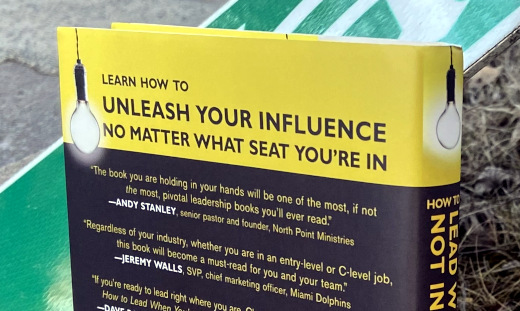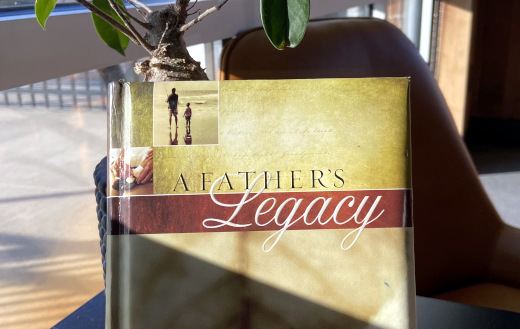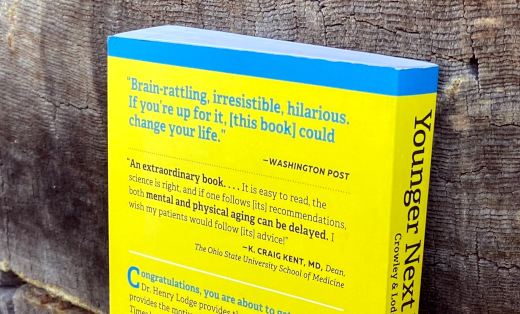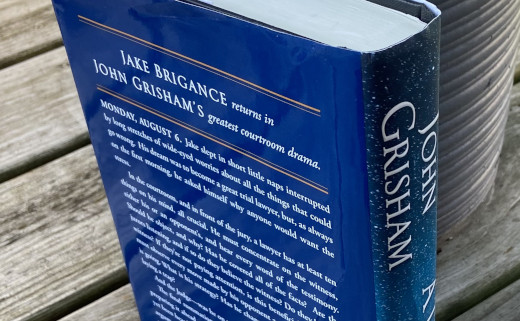My Takeaways From How To Lead When You’re Not In Charge

Whenever I hear someone retell the saying, “find a job you love and you’ll never work a day in your life” I am always reminded of the phrase, “you can’t always get what you want but if you try sometime you’ll find you get what you need.” Where many of us would love to prefix the word “dream” with any mention of our employment, the latter words of those famous British philosophers remind us we may not be in the most ideal situation, but rather the best for us at the time, whether it’s dull, chaotic or even just ok.
Sometimes when we face the day we can feel we are at a loss, that we are merely succumbing to a situation we have no say in. Why we feel like this may vary, often it is the case when we don’t have the title of a leader, but are staff working under a structure. Or at least that’s how it appears, and there may be an opportunity to make the best of the situation for yourself.
That very scenario is the crux of the book How To Lead When You’re Not in Charge by Clay Scroggins. A Christian minister, he shares his leadership experiences, official and unofficial, in his work in ministry, which from the sound of it is no less political than any traditional office.
As someone who has held leadership positions from low to as high as you can go (yes, I will claim being president of a one-person company as the high end of this), I have worked in a number of situations where I have been a boss, yet I can’t say that I was a leader to the same degree in all of those situations. This is what prompted me to pickup a copy of this book when I recently learned about it. Where there were a number of small takeaways from this book, I’ll share my larger ones.
You don’t need authority to be a leader, but most feel they do – This is the overarching theme of the book. I have seen this first-hand in many situations. Where we may not have formal sign-off powers, there’s likely plenty of other things we can do to lead the team and/or project we work on.
Lead yourself well – You can lead yourself even when others don’t lead you. I’ll be honest, in all of my years I never thought about it like that. Sure, I have heard it many times that we choose to be happy or angry, and we have control of ourselves more than we think. But saying that we are leading ourselves, well that was new to me. Maybe instead of a Pomodoro timer, I should have an alarm that goes off every 20 minutes asking, “are you leading yourself well?”
Influence has always been, and will always be, the currency of leadership – This is the answer to my first takeaway about not having authority, but if you have influence, that can make all of the difference. Think about it – who among your team (immediate or extended) has influence but is not in a leadership position? It also talks to how you can cash in on a potential leadership role.
Most NFL QBs come from smaller colleges – When I first read this, my first thought of course was of Tom Brady who graduated from the University of Michigan, a school that is far from small. After doing some searches on the Interwebs, I found both plenty of examples of quarterbacks who went to small schools and whole articles about it. As someone who went to a dinky school, this would have been of more comfort to me soon after I graduated; now over a score and a half later, nobody cares where I matriculated.
As How to Lead When You’re Not in Charge was written by a Christian pastor, there are many Bible and religions references, which increase in density as the book progresses. I personally was fine with this, being the good Catholic boy that I am. I only state it as some people may be turned off by this. Over and above, this book is a quick read that is both light-hearted and to the point, as Scroggins weaves his sense of humor throughout it. It stands as a good reminder of what you already bring to the table in your job that you may not be aware of. The book also has a “lead me” plan – it wouldn’t be a self-help business book without a plan! I did not work through it as I was not seeking yet another plan to work on in my life.
If you are in a position where you feel like you’re not making a difference or being ignored, I recommend picking up a copy of this book. As for what I am doing with mine, I am sending it to a colleague, someone who appreciates a good business book as well as the religions references.
This is from The Hot Iron, a journal on business and technology by Mike Maddaloni.
Did you enjoy this? Subscribe to The Hot Iron by RSS/XML feed or Read by Email
Book Take-Aways • (0) Comments • PermalinkMy Takeaways From Everything You Need To Ace American History In One Big Fat Notebook

As a proud history geek, I am naturally drawn to events, places and texts about the past. Perhaps it has something to do with growing up in Massachusetts and living in close proximity to many historical sites, some within feet of each other, such as what I wrote about these monuments in the eastern town of Arlington.
When I came upon the book Everything You Need To Ace American History In One Big Fat Notebook when perusing books at a thrift store, I was intrigued. Could such a book live up to its title? Would my own middle-schooler agree? Would I agree? As it was marked at the reasonable price of US$1.99, it was worth the “risk” to find out.
Before passing it along to my kid, I decided to read it first myself to see if it would pass my said standards. As you may have guessed I had some takeaways from it too.
High level, yet not a gloss over – I was impressed with the approach of the book. It covered a wide spectrum of US history, including both positive and negative aspects, such as slavery. The book started in the early 1600’s, including stories of Native Americans, and went through 2016 and the election of Barack Obama.
Shays’ Rebellion covered – Prior to cracking the orange cover of the book, I said to myself, “Self, I will be disappointed if there’s no mention of Shays’ Rebellion. Fortunately that never happened. If you are not familiar with what historians consider the first revolt within the newly formed United States of America – which took place within a few miles from where I grew up – it’s worth exploring.
I forgot a few details of American history, ok a lot of them – What can I say, there’s a lot of nuances to any history, let alone those of the Land of the Free and the Home of the Brave.
Written in a colorful style resembling a hand-printed and highlighted ruled notebook, Everything You Need To Ace American History In One Big Fat Notebook is complete with illustrations and maps. Although geared towards kids, it is a good resource for any adult to read and remind themselves of American historical events. It gets my seal of acceptance for a history book. Though I have passed it along to my kid to read, my timing couldn’t be any worse; she has a preference these days to the US History book she is using in her school class that she is getting graded on.
This is from The Hot Iron, a journal on business and technology by Mike Maddaloni.
Did you enjoy this? Subscribe to The Hot Iron by RSS/XML feed or Read by Email
Book Take-Aways • (0) Comments • PermalinkMy Takeaways From A Father’s Legacy

“If I only asked...” is something that pops in my mind on occasion. Usually it involves a new or strange situation I am in where I could use some advice, and the advice I am seeking is from someone who is no longer alive. If I only asked my Mom this, or my Auntie that... you get the idea. On occasion I even think of what a past leader – government or business – would think of current affairs and how they would react to them. In some cases we can derive information from their writings during their time, if they exist.
As I perused the pages of A Father’s Legacy, I thought of these very queries. What questions would my children or anyone after I left this mortal coil have of me, if they did have any? You see, A Father’s Legacy is a journal of writing prompts for a father that would ideally be passed down to future generations. It was given to me by my favorite Mother-in-Law when my first child was born, but it sat mostly untouched over the years and moves. I only finished it this summer around the time said child got their drivers license, so you can guess how diligent I was to it.
Can someone have takeaways from a mostly blank book? Certainly!
It’s very, very Hallmark – The book was purchased at a Hallmark store, and the prompts are in a style taken right off the greeting cards they are known for. There’s an assumption that I am the father of an idyllic nuclear family – think the Cleavers of Leave it to Beaver (if that means anything to you) – and the child of an idyllic nuclear family and that all is perfect in the world. The prompts are all very positive, even those that ask about “tough” times in life. I recall in my writings I had in some instances challenged or altered the prompts to better suit my own reality. Of course I say this with no disrespect to any friends who have made a good living working for said card conglomerate.
One Prompt at a Time – When I got this I thought I would just sit down and do a Vulcan mind meld into the pages of A Father’s Legacy, but that was far from the case. Even with said softball prompts, it is sometimes hard to put down all of one’s thoughts and feelings, especially if you are not in the right mindset. So I took it one at a time. Some writings went beyond the space allocated and others were a sentence or 2. I started from the beginning however over time I was jumping around for whatever I thought would be easy to respond to. In order to finish it started from the beginning and completed those I left blank for whatever reason. Another thing I did on my own was note the date that I scribed my responses.
Proud of my accomplishment – When I finished the last prompt response, I felt good that I completed this endeavor. That being said, I was not proud enough to go back and re-read or edit it, as I felt that what I wrote will stand on its own.
This is not the first time I completed a writing prompt book, as List Your Self and even 1 Page at a Time were similar, insightful journeys into my life. Where I still have the former, I misplaced the latter at some point over the years. I plan to also hold on A Father’s Journey. I am contemplating breaking the binding of both books and scanning them to preserve them digitally as well in paper format.
I highly recommend taking on such a writing journey, whether it’s with this prompt book or a similar one – I actually had another one of these journals still blank and sent it to a friend recently, and upon random perusal of journals in stores there are similar ones for fathers, mothers and almost anyone for that matter. Where I am not sure if you can still get A Father’s Journey in a store, I have seen copies of it online, even in e-book format. Whether or not your own life story will be eagerly sought out in future generations, completing this journal was overall a positive reflective process on my life thus far, and could be for you too. In the spirit of the holidays, it would make a great gift for someone or perhaps yourself.
This is from The Hot Iron, a journal on business and technology by Mike Maddaloni.
Did you enjoy this? Subscribe to The Hot Iron by RSS/XML feed or Read by Email
Book Take-Aways • (0) Comments • PermalinkMy Takeaways From Younger Next Year

They say you shouldn’t judge a book by its cover, but what about by its title? When I recently learned about the book Younger Next Year I was clearly intrigued. With all going on in my own life with my health, I just had to take a look at this book. So I bought a copy and made it a priority to read it cover-to-cover.
The copy I acquired was the latest version of Younger Next Year, which was the 15th anniversary edition (clearly I was late to the game on this book and its universe, but I digress). It was written by patient/doctor duo Chris Crowley and Dr. Henry Lodge, and new to this edition were passages on brain health by neurosurgeon Dr. Alan Hamilton.
Younger Next Year is a book geared for men by men, talking about being men getting older. It’s written in a conversational style one would expect from guys talking to each other while sitting in the stands at game or at a local watering hole. Chapters alternate between Crowley and Dr. Lodge, where the former talks in more general terms and the latter provides the medical wisdom and science behind the former. Right out of the gate this format worked for me.
So was Younger Next Year all style and no substance? Hardly, as you can see from a paired down list of my key takeaways from it.
Workout Hard 6 Days a Week – This is pounded through the book, and when not directly stated over and over again it is implied. We not only need to keep moving, but moving to the point we are sweating, gaining muscle, keeping flexible and so on. It’s something I knew as our bodies, which really haven’t evolved much since the caveman and cavewoman days, are not designed to be sedentary. Where I know I need to do this more often, I wish I could. To aid the effort I joined a gym. After a good start I have not kept it up… he types as guilt falls over him.
What We Eat Is Equally Important – This is something I have known and been practicing for years and especially in the last one. You can’t purely exercise weight off. Garbage-in, garbage-out as we say in the computer world applies to our bodies and we’re soaking in ultra-processed, over-engineered stuff to consume that is passed off with clever marketing as food. By eating real food and intermittent fasting I have lost 60 pounds in the last year. As my fellow New Englander Robert Frost said, “… and miles to go before I sleep” and I do have much more to lose. In the meantime I am going to enjoy the extra room I have in an airplane seat among other benefits.
You Can’t Do It Alone – We are warm-blooded animals that have a limbic brain. When I the authors say alone they don’t just mean being with a partner but close friends and acquaintances as well. I would add to this the “right” doctor that truly is going to help you on your journey. The reality there is whatever doctor is likely out-of-network from your health insurance.
Aging vs. Decaying – Where the former will just happen, something can be done about the latter. Each of these is often mistaken for the other. By following the advice in the book, where you will get older, could your body actually get younger?
The only thing I didn’t like about Younger Next Year is that it could get a little too repetitive. However I get it – they are trying to drive home a point, and it did not distract me from enjoying this book. I highly recommend Younger Next Year for anyone Gen X and older, as well as those just behind us as they will be here sooner than they think. There’s also a woman’s version of the book, and I am interested if any of my female readers read a copy of it.
As for whom I am giving this book to, it is going to a good friend who is not too far behind me in years and should know well about the idea of vigorous exercise. It will be good timing to send to him as he has been getting self-reflective lately.
This is from The Hot Iron, a journal on business and technology by Mike Maddaloni.
Did you enjoy this? Subscribe to The Hot Iron by RSS/XML feed or Read by Email
Book Take-Aways • (0) Comments • PermalinkMy Takeaways From A Time For Mercy

You see them everywhere, well at least I do. They are usually together, in a collection on a rack or shelf at a bookstore, department store and always at airport gift shops. The titles are somewhat catchy and who created them are familiar because you have seen them before, even if you don’t have first-hand familiarity with them. If it wasn’t for me getting one of these for Christmas last year. I probably would’ve never entered their world, or at least this soon.
What am I talking about? Where the technical term may be non-fiction novels, I refer to them as “big” novels – stories written by authors who have written many books over the years, and when I mean many I mean in the dozens. Thanks to that gift from my Mother-in-law, I am now proud to say I have read a “big” novel.
My entry into this universe is A Time for Mercy by John Grisham. I was eager to read this because I was always curious to read Grisham, but also because it took an awful lot of room on my already burgeoning bookshelf. It seemed like a good book to take on the road, and when we recently took a family trip – no less on an airline that had no Wi-Fi – this was the perfect opportunity to disconnect from the world and connect with this story.
A Time for Mercy is the fictional tale of a murder case taken on by Jake Brigance, a lawyer in a small Mississippi town in the 1990’s. Grisham himself was a lawyer, I found out afterwards, and this explains its extensive yet enjoyable-to-read detail. So would I have takeaways from such a tale? But of course.
Great storytelling – From the moment of take-off to throughout the trip and to the flight home, I really enjoyed it. This was perfect escape from me and helped me relax while on vacation (I know, me!). There was great storytelling throughout its 400 pages and it was a very compelling read.
Doing the work can make for good reading too – Many times when you take in a story, especially a legal one, it never gets into the grunt work that goes on behind the scenes leading to the main dramatic events. In A Time for Mercy there was sufficient detail of this mundane work woven throughout it. I found it not only important to how the story unfolded but refreshing. Over this same time period my family was binge watching the TV show Suits, which is a perfect example of just the opposite – drama without the detail.
Need to mix in more books from other “big” authors – Fortunately my wife has some of these books on her nightstand so when I get through the myriad on my own bookshelf, I may borrow one or several from her.
A Time for Mercy was an enjoyable read and recommend it to anyone looking for a thematic escape. Even if you are not into legal tales, this tells a good story of those impacted by the case, in and out of the court room. Eager to give this one away due to its size, I sent it to my cousin along with a coffee mug and Starbucks gift card, and my hopes he gets an enjoyable escape when he reads it as I did.
This is from The Hot Iron, a journal on business and technology by Mike Maddaloni.
Did you enjoy this? Subscribe to The Hot Iron by RSS/XML feed or Read by Email
Book Take-Aways • (0) Comments • Permalink
